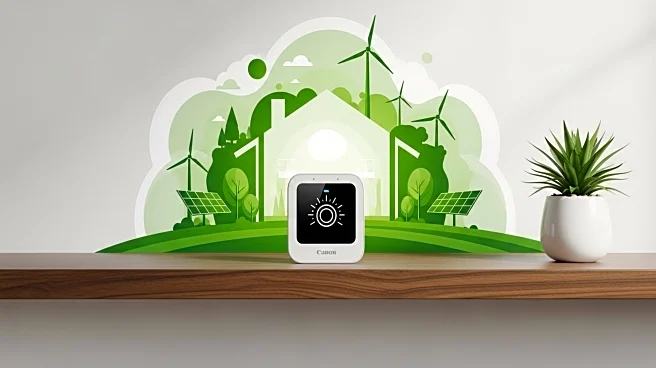What's Happening?
Residential buildings are responsible for nearly 20% of U.S. emissions, making them a critical focus for climate action. Smarter homes, equipped with electric vehicle chargers, heat pumps, and solar panels, are essential for reducing carbon emissions and enhancing resilience. ABB's expertise in electrification is pivotal in upgrading the 48 million American homes built before 1980, which were not designed for modern energy needs. The shift to electrification involves practical upgrades that are affordable and efficient, addressing challenges such as labor shortages and grid pressure.
Why It's Important?
The transition to smarter homes is crucial for achieving net-zero emissions and enhancing energy resilience. Electrification of residential systems can significantly reduce emissions, with electric heat pumps alone lowering emissions in 99% of U.S. homes. This shift supports the broader clean energy transition, offering benefits such as improved air quality and energy equity for vulnerable communities. As residential electricity use is projected to rise, the adoption of smarter energy systems will play a vital role in meeting future energy demands and supporting sustainable living.
What's Next?
The momentum for residential electrification is growing, with policies supporting building decarbonization and net-zero readiness. ABB's solutions, such as ReliaHome™ Smart Panels, are designed to facilitate this transition by providing modular, efficient systems that integrate solar and storage. As the market and technology are ready, the focus will be on scaling practical solutions that work in real homes. The shift to electrification will also transform homes into charging hubs for electric vehicles, further integrating transportation and residential energy systems.











